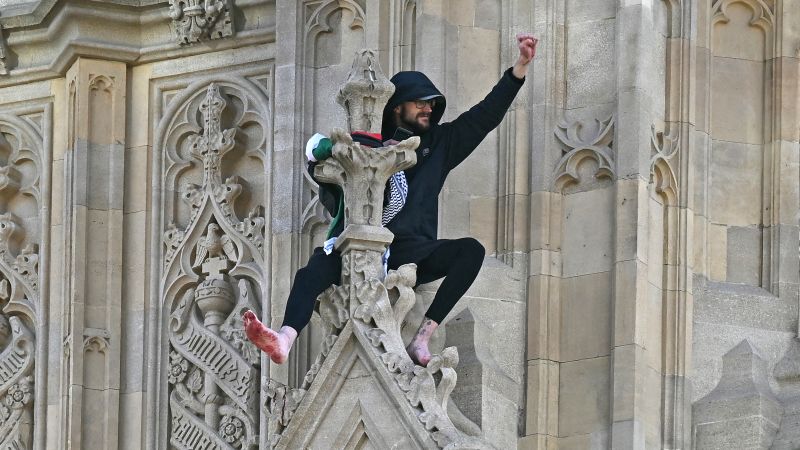TALLAHASSEE — Florida Attorney General Ashley Moody is asking a federal judge to stop the Justice Department from blocking the state’s investigation into the man charged with attempting to assassinate former President Donald Trump at his golf course in West Palm Beach.
In a federal complaint filed on Wednesday, Moody said federal prosecutors told the state to suspend its investigation into Ryan Routh within days of it being launched, citing a federal law that governs when federal officials have jurisdiction over local or state investigations in crimes against major public figures.
“Every day that Florida is prevented from investigating, the State’s case becomes harder to prove at trial,” Moody’s office said in a complaint that ultimately seeks to allow the state to interview witnesses and issue subpoenas in pursuit of state charges against Routh.
The legal battle is the latest attempt by the state to elbow its way into the high-profile case — which Gov. Ron DeSantis and Moody have said merits a state-led investigation to help lend credibility to the outcome of the federal case.
The Federal Bureau of Investigation is leading the investigation into Routh, who is accused of lurking with a gun near Trump’s golf course in West Palm Beach for 12 hours before being spotted by a Secret Service agent. Routh never had Trump in his line of sight, but was able to hide in the bushes near a fence at the edge of the course while Trump golfed about 400 yards away. Secret Service personnel fired at Routh, who according to law enforcement never got off a round from his rifle. He then fled the scene and was stopped in Martin County.
Routh is charged with attempted assassination of a presidential candidate, a federal charge that carries a maximum penalty of life in prison. He also is charged with possessing a firearm in furtherance of a crime of violence, and with assaulting or intimidating a Secret Service agent.
Moody said her office wants to pursue similar charges against Routh at the state level, but says federal officials are making a “grave mistake” preventing her office from doing so because such a “delay may impact the outcome of any prosecution.”
The Department of Justice declined to comment on Moody’s lawsuit. But federal law states that, “if federal investigation or prosecutive jurisdiction is asserted for a violation,” then “such assertion shall suspend the exercise of jurisdiction by a State or local authority, under any applicable State or local law, until Federal action is terminated.”
Court records show that U.S. Attorney Markenzy Lapointe of the Southern District of Florida wrote to Moody in September that “it is in the interest of justice for there to be strong and continuing cooperation between federal law enforcement and state and local authorities.”
Lapointe added that once the federal investigation concludes, nothing will stop the state from reviewing the evidence in the case or pursuing state charges against Routh.
DeSantis directed the state to launch its own investigation into Routh after the suspect was arrested. The governor said the state’s involvement was necessary to lend credibility to the federal investigation and to ensure that “the truth about all this comes out.”
“With all due respect” to the federal government, “those same agencies that are prosecuting Trump in that jurisdiction are now going to be investigating this,” DeSantis said at the time. “I just think that that may not be the best thing for this country.”
DeSantis has long been a critic of the FBI, stretching back to his time in Congress when he was a prominent defender of Trump when he was being investigated over his ties to Russia.
Moody’s complaint further emphasizes the state’s claim that there is a “lack of public confidence in the federal investigation” because of perceived biases against Trump.
“Given all the public scrutiny on the FBI, DOJ and the Secret Service, one would think that having Florida conduct its own investigation alongside federal agencies would mitigate public concern regarding credibility and reliability of these institutions and would be welcomed by the federal government,” Moody wrote in a Sept. 23 letter to FBI Director Christopher Way, which was filed alongside the lawsuit.
Moody’s office also claims that the special agent leading the federal investigation “has made statements in the past that some believe demonstrate bias against President Trump,” though the complaint does not offer any evidence of these statements.
Moody filed the lawsuit in the U.S. District Court for the Southern District of Florida in the Fort Pierce Division. One of the judges in that district court is Aileen M. Cannon, a Trump appointee who is handling Routh’s case.
Routh’s defense lawyers have tried to get Cannon to remove herself from the case after news reports said she was under consideration for attorney general if Trump wins the election in November.
Cannon also dismissed the classified documents case against Trump in August.
McClatchy Chief Washington Correspondent Michael A. Wilner contributed to this report.












